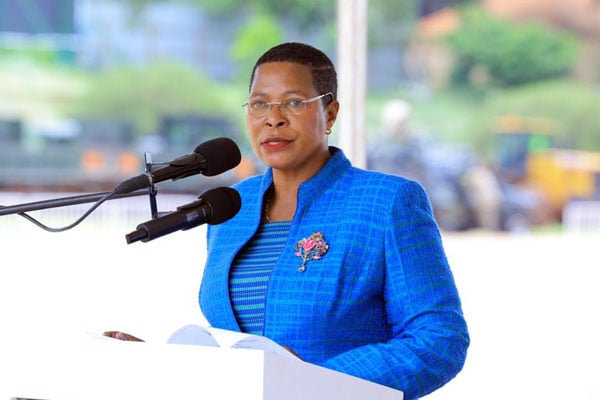Things get tight for startups as equity funding reduces

Equity investors are now looking at startups that deal in products related to renewed energy such as e-mobility-enabled motorbike. Photo / File
What you need to know:
- Startups raised just $4.17m (Shs16b) from several investors across the globe last year, which was way below the $69.31m (Shs266.6b) that 22 startups mobilised in 2022
Investors have long been number-crunching on the plausible returns they fetch from Uganda’s private-equity investments.
They are now holding back, forcing several local startups to significantly downscale or stutter completely.
Last year, as many pushed to hold their companies to break even while also keeping them profitable, seven startups succeeded in raising $4.17m (Shs16b) from several investors across the globe, positioning Uganda at seventh among the countries with the most secured startup funding in Africa.
This, however, according to DisruptAfrica, a startup data portal, represented a 94 percent decrease from $69.31m (Shs266.6b) 22 startups pooled in 2022, in addition to the exit of some equity investors such as UK-based 8 Miles, which sold its stake in Biyinzika Poultry.
Other exits included Cipla India from Cipla Quality Chemicals, Experian left Experian Credit Rating Bureau, while Swiss Holcim Group existed Hima Cement.
“Against a backdrop of one of the stronger exit performances, 2023 represented the most significant decline in the industry’s deal performance in Uganda in recent years, with the last similar performance in publicly disclosed aggregate deal volumes being in 2016,” the East Africa Private Equity and Venture Capital Association notes in a disclosure.
Only 15 deals valued at approximately $78.6m were completed last year compared to 32 in 2022, which was a result of the cyclical nature of the investment sector, where many private equity funds delayed to raise new funds to reach their full investment levels.
The US Federal Reserve’s quantitative tightening monetary policies, according to East Africa Private Equity and Venture Capital Association researchers, has shot up interest rates, ending the cheap money that venture capital have long been able to use to invest in high-risk ventures.
Hence, the global withdrawal of venture capital, mainly from US from high-risk investments in Africa and other emerging markets consequently hitting Ugandan start-ups, which heavily depend on US-based venture capital the and overall funding boom throughout Africa.
This is because many venture capitalists want to concentrate on less risky ventures in developed markets.
“Mirroring both continental and global trends, many previously active investors chose to keep their powder dry, or indeed had no powder to deploy. This saw investor numbers fall back to fewer than even 2021, though still more than 2020,” DisruptAfrica, noted in its 2023 report.
During the period, some leading international investors such as Tiger Global, Sequoia Capital, and SoftBank were notably absent in the Ugandan startups deal making, while the few that remained preferred equity funding than debt to spread risks.
Debt financing requires regular interest payments and eventual repayment of the principal, which can strain cash flow positions.
Only 43 of the 406 funded startups in Africa raised debt funding across their rounds in 2023.
But the cash drought still affected several startups in Uganda.
For instance, Tugende struggled to cover its capital funding in 2022, to the point where it had to borrow $1.9m from the working capital of its subsidiary in Kenya – Tugende Kenya.
This, however, was against the loan covenant that Tugende Kenya had worked out with its lenders, given that the borrowed money was part of the $5m loan that had sought to help the Kenyan unit break even.
To avoid having its assets taken as collateral, Tugende Uganda entered into negotiations with US lender Goldfinch last year, to restructure the loan.
Away from Tugende, Copia, an e-commerce business based in Kenya raised $50m in Series C funding in 2022, but later declared its exit from Uganda due to “the market environment and [need to] prioritise profit.”
Weeks after being threatened with a $262,000 debt collection lawsuit, Twiga Foods, another company that links food vendors with Kenyan farmers, recently obtained undisclosed funding as part of a business refinancing process.
With a cash-flow-dependent operating subsidiary in Uganda, Twiga is currently having trouble meeting its debt obligations, and some of its creditors are pushing for its liquidation.
The African Venture Capital Association reports that several start-ups that had previously raised substantial sums of money from investors shut down last year as a result of inability to secure follow-up funding rounds.
“[The] reasons for their ultimate demise range from a lack of working capital after failing to raise follow-on funding, difficulties establishing sufficient and sustainable market penetration, and allegations of corporate governance misconduct against founders,” the African Venture Capital Association notes.

Many funders are now looking at funding smart and renewable energy projects. Photo / File
Becoming impatient
Due to numerous gains, including dividends from companies they own, coupon payments from bonds, and the recent increase in interest rates - especially in the US where they were raised to combat rising inflation - many global investors are becoming impatient with private equity investments in emerging markets that are slow to post returns.
“Should the lack of liquidity and present market challenges persist, founders may be forced to make more tough, strategic decisions in order to remain afloat and prioritise profit,” the African Venture Capital Association notes further notes.
But Artificial Intelligence (AI) startups are emerging, attracting investor interest because of their potential to transform established industries, increase productivity, and open up new investment opportunities.
“While the possibilities within and applications of AI in African tech are diverse, data reveals an entrepreneurial focus on AI technologies that can be leveraged to leapfrog legacy infrastructure and revolutionise traditional sectors,” African Venture Capital Association notes.
Emata, an AI-powered alternative credit scoring mechanism startup for agricultural loans in Uganda, raised $2.4m, after demonstrating creative uses of AI for financial inclusion.
Direct investments
Deal trackers are also observing that even though there is a cash crunch among private equity and venture capitalists, there is a noteworthy upsurge in direct investments in Uganda with capital allocators going head-to-head for deals with fund managers.
In 2023, traditional capital allocators made direct investments totaling $300.3m into Ugandan portfolio companies and projects, up 575 percent from $44.5m in 2022, according to data from East Africa Private Equity and Venture Capital Association deal tracker for Uganda.
Between two deals in 2022 and six deals in 2023, the number of direct investments into Ugandan portfolio companies and projects also increased by 200 percent, with an average deal size of $75m, up from $22.3m in 2022.
Outlook
Many financial deal trackers are doubtful about inflows into Uganda over the next two years ahead of a new election cycle, which comes with macroeconomic challenges.
However, they remain optimistic with the developments in generative AI with particular impact on the AgriTech and Fintech startups but “it is also not clear how generative AI will change traditional sectors such as manufacturing and how this may impact the attractiveness of these sectors.”
There is also an increased global commitment to mobilise and deploy private capital to finance aspirations of a net zero future.
The race to attain net zero targets and a global momentum, suggests that more capital commitments towards renewables such as solar energy, hydroelectricity, e-mobility, and the circular economy, are likely.



